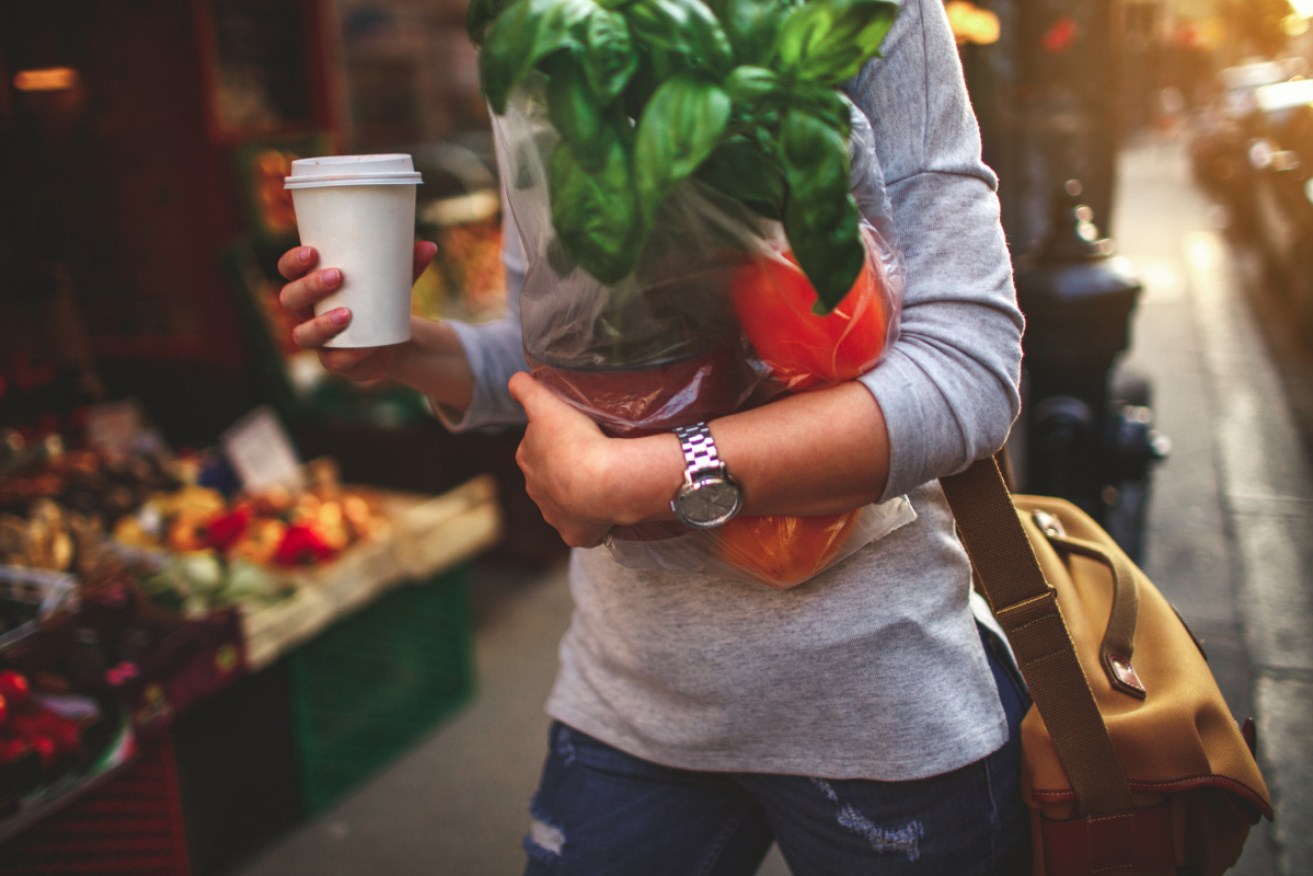Australians spend $272 billion on food and drinks, but better budgeting could save us


Australians spend an average of $285 a week on food and drinks. Photo: Getty
Australia’s total food and beverages bill topped $272 billion last year, but most households could make big savings by simply sticking to a budget.
While the majority of Australians – 65 per cent – have a food budget, 25 per cent fail to adhere to it, the Suncorp Cost of Food report released on Monday showed.
One-third of Australians don’t have a food budget at all, the national survey of more than 1500 Australians revealed.
Common expenses: Booze, restaurants and takeaway
Australians spend an average of $285 on food in each week, the report revealed.
The largest portion of that ($135) went on “standard groceries”, but alcohol, eating out and takeaway meals also added to the total bill.
Individuals spent an average of $52 a week dining out, but the activity was much more popular among younger people, with those aged 55 and above likely to spend less or not eat out at all.
Booze took a chunk out of the pie, with people spending an average of $31 a week on alcohol.
Takeaway spending came in around $22 a week, but 40 per cent of those surveyed reported not indulging in the easy alternative to home cooking in an average week.
Takeaway meals proved most popular among young people aged 18 to 34 and high-income earners.
Food delivery services such as UberEats, Deliveroo, and Menulog, saw an average spend of $12 a week.
Other common expenses included coffee and tea ($13), supplements ($12), and health foods ($11).
Instinct overrides good intentions
The findings show that instincts override good intentions to drive our spending decisions when it comes to food, Suncorp behavioural economist Phil Slade said.
“We all have good intentions when it comes to our finances, but for many of us our brains go into auto-pilot when it comes to food,” he said.
“For example, most of us agree regularly spending money on takeaway food and barista-made tea and coffee is an unreasonable expense, yet we’re spending $140 a month on these items.”
In the busy modern world, consumers have a tendency to “throw money” at their problems in a quick attempt to fix them, Mr Slade said.
“Hunger or boredom are examples of painful problems we tend to solve by spending on food,” he said.
“This is why we shouldn’t go shopping when we’re hungry, as our brains are more focused on addressing the hunger than thinking about our finances.”
Food delivery services are the enemy of those trying their best to stick to a budget, Mr Slade explained.
“While the rise of food delivery services are perceived as making life simpler, they’re also giving us another outlet to spend money in moments when we’re experiencing pain (hunger), which in most cases hasn’t been budgeted for,” he said.
Food budgeting tips
- Plan your meals – Thinking about meal planning a few days in advance is the single most cost-effective way to get the most out of your budget. Being prepared means you only do one grocery shop instead of two and ensures you avoid buying additional items you don’t necessarily need
- Shop online and don’t shop when you’re hungry – another way to avoid purchasing additional unnecessary items is to do your grocery shop online because you’re able to avoid temptation so you’re less likely to purchase those blocks of chocolate you don’t need. You can also grab a snack easily if you’re feeling hungry, so you don’t get seduced by beautiful pictures of appetising food
- Shop around – different shops will have different specials on any given week, so it often can be worth taking the time to tailor meals around sale items and shop around before committing to a meal (or even a grocery store)
- Value leftovers – Not only can leftovers be delicious, they can also be a cost-effective option for your lunch the next day
- Grow your own food – space constraints can limit our food-growing opportunities but a herb or vegetable garden can shave dollars off your weekly grocery bill. Cherry tomatoes, lettuce and broccoli are particularly adaptable to apartment living.








